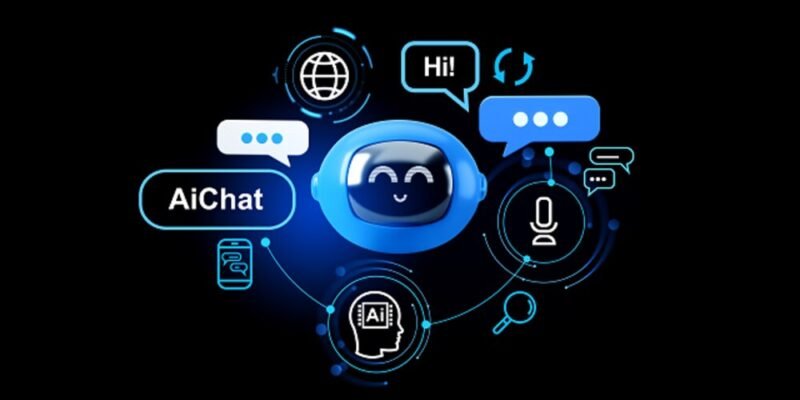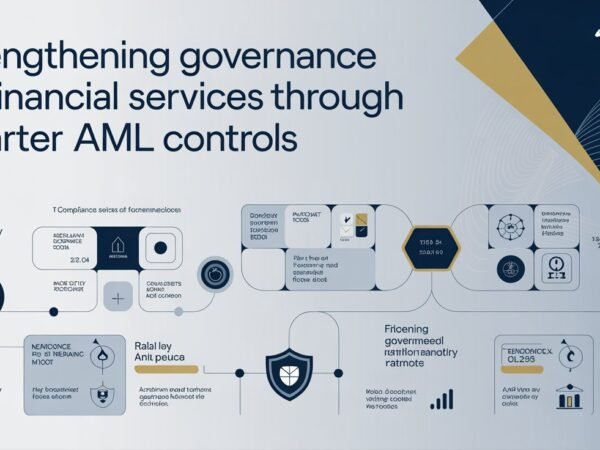In today’s fast-paced, digital-first world, delivering exceptional customer service has become a critical differentiator for businesses of all sizes. As customer expectations continue rising, organizations increasingly turn to artificial intelligence (AI) to enhance and streamline customer service operations. AI-powered customer service represents a transformative shift in how companies engage with and support their clients, offering benefits that can drive customer satisfaction, operational efficiency, and business growth.
In this comprehensive article, we’ll explore the evolution of customer service, the advantages of AI-powered solutions, the technologies powering this revolution, and best practices for successful implementation. We’ll also delve into real-world case studies and examine the future of AI-powered customer service. By the end, you’ll have a deep understanding of leveraging this cutting-edge technology to elevate your customer experience and stay ahead of the competition.
The Evolution of Customer Service
Customer service has come a long way from the days of face-to-face interactions and telephone-based support. The rise of digital communication channels, such as email, chat, and social media, has fundamentally transformed the customer service landscape. Customers now expect seamless, omnichannel experiences that cater to their preferences and provide instant, personalized support.
However, the increasing volume and complexity of customer inquiries have also strained traditional customer service models. Businesses have struggled to keep up with the growing demand, often resulting in long wait times, inconsistent responses, and frustrated customers. This is where AI-powered customer service offers a solution that can revolutionize how organizations interact with and support their clients.
“AI is revolutionizing customer service by providing businesses with tools to manage increasing demands while still delivering personalized experiences. The shift from human-only interactions to AI-assisted models is a game-changer.” — Lisa Clemento, Marketing Director at Sparkaven
Benefits of AI-Powered Customer Service
The integration of AI into customer service operations unlocks a wealth of benefits for both businesses and their customers:
- Improved Responsiveness: AI-powered chatbots and virtual assistants can provide instant, 24/7 support, ensuring that customers receive timely responses to their inquiries, regardless of the time or day of the week.
- Enhanced Personalization: AI algorithms can analyze customer data, preferences, and behavior to deliver highly personalized and tailored support, creating a more engaging and satisfying experience for the user.
- Increased Efficiency: AI-powered systems can automate routine tasks, such as answering frequently asked questions, freeing human agents to focus on more complex and strategic customer interactions.
- Reduced Operational Costs: AI-powered solutions can help businesses reduce labor costs, operational expenses, and the need for physical infrastructure by streamlining and automating various customer service processes.
- Improved Consistency: AI-powered customer service ensures that every interaction is consistent, accurate, and aligned with the organization’s brand and values, creating a more reliable and trustworthy customer experience.
- Enhanced Data-Driven Insights: AI-powered customer service platforms can collect and analyze vast amounts of customer data, providing valuable insights that can inform strategic decision-making and drive continuous improvement in service delivery.
“AI enables businesses to be more responsive, providing round-the-clock service that meets customer expectations for instant support. This not only enhances customer satisfaction but also significantly reduces operational costs.” — Lisa Clemento
AI Technologies Used in Customer Service
A range of advanced technologies fuels the AI-powered customer service revolution, each playing a crucial role in enhancing the customer experience and streamlining operations:
- Natural Language Processing (NLP): NLP enables AI systems to understand, interpret, and respond to human language, allowing for more natural and intuitive customer conversations.
- Machine Learning (ML): ML algorithms can analyze customer data, identify patterns, and make predictions to personalize the customer experience and anticipate needs.
- Conversational AI: Chatbots and virtual assistants powered by conversational AI can engage in human-like dialogues, providing immediate assistance and resolving common customer inquiries.
- Sentiment Analysis: AI-powered sentiment analysis can detect and interpret the emotional tone of customer interactions, enabling businesses to respond empathetically and address concerns more effectively.
- Knowledge Management: AI-powered knowledge management systems can quickly retrieve and surface relevant information to help agents and chatbots respond accurately and comprehensively to customer queries.
- Predictive Analytics: AI-powered predictive analytics can forecast customer behavior, identify potential issues, and proactively offer solutions, enhancing the overall customer experience.
Implementing AI-Powered Customer Service in Your Business
Integrating AI-powered customer service into your organization requires a well-planned and strategic approach. Here are some key steps to consider:
- Assess Your Current Customer Service Capabilities: Evaluate your existing customer service processes, pain points, and areas for improvement to identify where AI-powered solutions can have the most significant impact.
- Define Your Customer Service Objectives: Clearly articulate your goals for implementing AI-powered customer service, such as improving response times, reducing operational costs, or enhancing customer satisfaction.
- Choose the Right AI Technologies: Evaluate the various AI technologies available and select the ones that best align with your customer service objectives and the specific needs of your business and your customers.
- Develop a Comprehensive Implementation Plan: Create a detailed roadmap that outlines the resources, timelines, and milestones for deploying your AI-powered customer service solution, ensuring a smooth and successful transition.
- Train and Empower Your Team: Provide comprehensive training to your customer service agents, equipping them with the skills and knowledge to effectively leverage AI-powered tools and work seamlessly alongside the technology.
- Continuously Monitor and Optimize: Review the performance of your AI-powered customer service solution regularly, gather feedback from customers and agents, and adjust to ensure continuous improvement and maximum impact.
“Successful AI implementation in customer service isn’t just about the technology; it’s about integrating AI in a way that complements human agents, improving both efficiency and the customer experience.” — Robin Luo, Founder of ICRFQ
Best Practices for AI-Powered Customer Service
Implementing AI-powered customer service requires adherence to a set of best practices. Here are some key considerations:
- Ensure Transparency and Ethical AI Practices: Be upfront with customers about the use of AI and implement ethical AI practices that prioritize data privacy, algorithmic fairness, and human oversight.
- Maintain a Human Touch: While AI can automate many customer service tasks, it’s essential to maintain a human presence and the ability for customers to connect with live agents when needed.
- Prioritize Seamless Integration: Ensure your AI-powered customer service solution integrates seamlessly with your existing customer relationship management (CRM) systems and other relevant business applications.
- Foster Continuous Learning and Improvement: Regularly analyze customer feedback and performance data to identify areas for improvement and continuously refine your AI-powered customer service approach.
- Empower Agents with AI-Driven Insights: Provide your customer service agents with real-time insights and recommendations from your AI-powered systems to enhance their decision-making and problem-solving abilities.
- Communicate Effectively with Customers: Communicate the capabilities and limitations of your AI-powered customer service solution to set appropriate expectations and maintain transparency with your customers.
Common Challenges with AI-Powered Customer Service
While the benefits of AI-powered customer service are substantial, there are also some common challenges that organizations must navigate:
- Technological Complexity: Implementing and maintaining AI-powered customer service solutions can be technologically complex, requiring specialized expertise and significant investment in infrastructure and training.
- Data Privacy and Security Concerns: Customers may have concerns about the privacy and security of their data, which must be addressed through robust data governance and security measures.
- Resistance to Change: Some customers and employees may be hesitant to embrace AI-powered customer service, preferring traditional human-to-human interactions, which can create adoption challenges.
- Ensuring Empathy and Emotional Intelligence: While AI can handle many customer service tasks, it may struggle to replicate the empathy and emotional intelligence that human agents can provide, especially in sensitive or complex situations.
- Ongoing Maintenance and Optimization: AI-powered customer service solutions require continuous monitoring, maintenance, and optimization to ensure they remain effective and up-to-date with evolving customer needs and technological advancements.
Case Studies of Successful AI-Powered Customer Service Implementations
To illustrate the real-world impact of AI-powered customer service, let’s explore a few case studies:
- Telecommunications Giant Reduces Call Volume by 50%: A leading telecommunications company implemented an AI-powered chatbot to handle common customer inquiries, such as account information and billing questions. The chatbot quickly and efficiently resolved these queries, reducing call volume by 50% and freeing human agents to focus on more complex customer issues.
- Retail Powerhouse Enhances Personalization and Conversion Rates: A major retail brand leveraged AI-powered predictive analytics and personalization to deliver tailored product recommendations and offers to its customers. This resulted in a 20% increase in conversion rates and a significant boost in customer satisfaction.
- Financial Institution Improves First-Call Resolution by 30%: A prominent financial institution deployed an AI-powered knowledge management system to empower its customer service agents with real-time access to relevant information and resources. This led to a 30% improvement in first-call resolution, enhancing the overall customer experience.
The Future of AI-Powered Customer Service
As AI technology continues to evolve and become more sophisticated, the future of customer service is poised to undergo even more transformative changes. Some of the key trends and advancements we can expect to see in the years ahead include:
- Hyper-Personalization: AI-powered systems will become increasingly adept at analyzing customer data and preferences to deliver truly personalized and contextual experiences, anticipate customer needs, and proactively offer tailored solutions.
- Multimodal Interactions: Customers can engage with AI-powered customer service through various channels, including voice, text, and video, creating a seamless, omnichannel experience.
- Predictive and Proactive Support: AI-powered predictive analytics will enable businesses to identify and address customer issues before they arise, delivering a more proactive and preventative customer service approach.
- Autonomous Decision-Making: AI systems will become more capable of making autonomous decisions and taking actions on behalf of customers, reducing the need for human intervention in routine tasks and inquiries.
- Emotional Intelligence and Empathy: As AI technology advances, we can expect AI-powered customer service agents to be better equipped to understand and respond to customers’ emotional and psychological needs.
“As AI continues to evolve, the future of customer service will be characterized by hyper-personalized experiences that anticipate customer needs and provide tailored solutions in real time.” — Matias Rodsevich, Founder & CEO, PRLab
Conclusion
In the ever-evolving customer service landscape, AI-powered solutions have emerged as a transformative force, driving enhanced responsiveness, personalization, and operational efficiency. By embracing this technology, businesses can elevate their customer experience, gain a competitive edge, and position themselves for long-term success.
As you embark on your journey to implement AI-powered customer service, remember to prioritize transparency, maintain a human touch, and continuously optimize your approach to meet your customers’ evolving needs. With the right strategies and technologies, you can unlock AI’s full potential and deliver exceptional customer service that sets your business apart.













